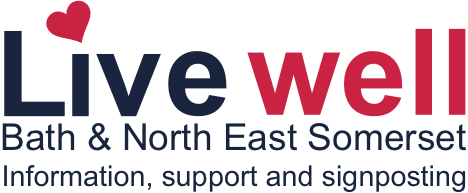Information for young adults
Transitions to Adult Services
If you are already receiving support from Children’s Services by 16 years of age and have been diagnosed with autism, you will begin your transition into Adult Services so that everything is in place by the time you are 18 years old. If you are aged 18 or over at diagnosis/point of entry, you will go straight into the Autism Case Management Service.
This team will help you with:
- Completing an assessment of your health and social care needs
- Reviewing existing service and support
- Completing Carers Assessments and providing advice to carers
- Providing advice and guidance on issues around benefits, housing, employment, education and training
- Providing information and signposting to appropriate services
- Setting up personal budgets and assisting you to find an appropriate service
For information about transferring to the Autism Spectrum Conditions Case Management Service have a look at HCRG Care Group's pages
Autism and jobs
Some autistic people are still able to work, you may just need help from your employer (the person you work for).
The National Autistic Society have some information about working when you are autistic.
Although they don’t provide specific information or support for autistic people, the National Careers Service can offer generic advice on getting a job, they have a telephone number you could call, or you can chat to them online.
They also have information on their website about applying for jobs, including how to answer some common interview questions, how to write a CV and much more.
The National Autistic Society also has some information for people employing autistic people.
The below video shows a young person with autism and how she went through the education system to go on to get a job.
Post 16 Education, Employment and Training options
There are several routes open to you once you are ready to move on from your education, including paid employment, job internships, apprenticeships, traineeships or volunteering.
Ambitious About Autism have created an Employ Autism Toolkit for young people.
Part one includes resources for you to develop and complete with guidance from a careers and employability professional. This will support you to find suitable education, training and work placement opportunities for you. These templates are editable, and you can personalise them to support your individual needs and understanding.
Part two includes information and support to prepare you for a work experience placement, such as interview preparation and advice and support for communicating your needs in the workplace.
Supported Routes to Employment (SuRE) is an individual learning programme delivered in the workplace. Students will be support by a Tutor and a job coach whilst experiencing a workplace environment. You will be supported to develop interpersonal skills, employability skills and will engage in specific tasks appropriate to your role.
Step Up/Step Up Plus is a bridging programme supporting learners experience emotional, social and/or mental health difficulties to prepare them for their next steps into wider college programmes or supported employment.
Project Search is an employability programme provided through Bath and North East Somerset Council involving work placements, an experienced job coach and support from tutors to develop key employability skills. The end target for this programme is paid employment.
Future option:Mencap Interns and Outcomes. Provisionally scheduled to begin in September 2021, this is a full-time study programme offering a long-term work experience placement. This enables each individual to learn the skills they need for work through practical on-the-job learning, supported by a job coach. If you are interested in exploring this for 2021, please contact Mark.capper@mencap.org.uk.
Apprenticeships: The Council for Disabled Children have some really helpful advice on their website about apprenticeships for people with a disability, including what to expect from an apprenticeships and where to start.
Swallow Charity offer the opportunity for teenagers and adults with learning disabilities to learn life skills, develop their social and emotional skills, and develop skills for employment and independence.
Life Project Bath offer the opportunity to develop social skills in a community setting, all supporting a young person's independence and confidence as they move into independence.
Bath City Farm is a charity offering courses to support young adults and adults to develop key skills supporting them into independence.
Autism and driving
Being autistic does not automatically mean that you can not drive. There is a website dedicated to providing information to autistic people around driving: Driving with Autism.
The National Autistic Society also has lots of information on being autistic and driving, including learning to drive, tests, fitness rules and the blue badge scheme.
Going to the Doctors
If you are feeling unwell, you may need to make an appointment to go to the doctors, here is a guide about visiting your doctor.
If you need hospital treatment you may find having a Hospital Passport will assist you. The National Autistic Society have a template and guidance on their website for these.
Going to the Dentist
There is some information to help you to find out what to expect from the Dentist.
Last updated: 24 August 2022
